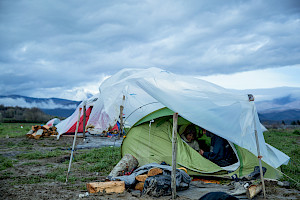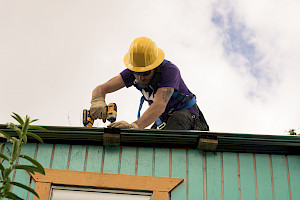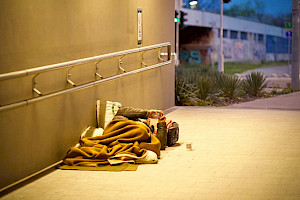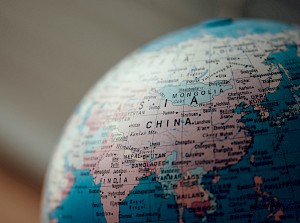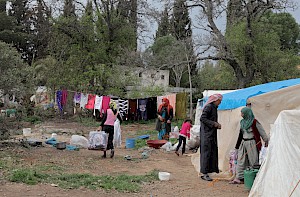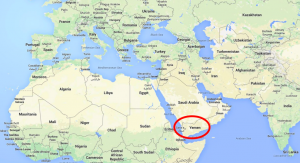Why women are the solution to poverty in the developing world
June 27, 2022Originally published in The Toronto Star on June 14, 2022 as contributing columnist
I have always felt women should run the world.
Men have done such a dismal job of it over the centuries. Testosterone and ego make a powerful but destructive cocktail that induces men to make bad decisions on a regular basis. Women, on the other hand are, well, less reckless, and more sensible. When is the last time in recent history that a female leader started a war? U.K. prime minister Margaret Thatcher’s 1982 Falklands war is the only one that comes to mind.
A woman’s common sense is also evident when it comes to managing household finances.
According to the Organization for Economic Cooperation and Development (OECD), women’s economic participation and their ownership and control of productive assets speeds up development, helps overcome poverty, reduces inequalities, and improves children’s nutrition, health, and school attendance. The bottom line is women typically invest a higher proportion of their earnings in their families and communities than men.
This fact is especially important in rural parts of the developing world where poverty is endemic. But there is one small problem: Women’s role in rural economies is typically that of farm labour only, and they have significantly less access to, control over, and ownership of land and other productive assets compared to their male counterparts. When it comes to land — perhaps the most important economic asset — women account for only 12.8 per cent of agricultural landholders in the world.
Evidence indicates that if these women had the same access to productive resources as men, they could increase yields on their farms by 20 to 30 per cent, raising total agricultural output in developing countries by 2.5 to four per cent, in turn reducing the number of hungry people in the world by up to 17 per cent.
The importance of investing in women encouraged non-profit organization, Acceso, which I founded in 2007, to look into rectifying this issue in a sustainable manner by training and supporting women to become farming entrepreneurs and creating employment opportunities for rural women. On a recent trip to Colombia and El Salvador, I witnessed first-hand how our programs are proving that one of the key ingredients in alleviating poverty is to empower women in agriculture.
In Colombia, where 83 per cent of rural women identify themselves as farmers and 24 per cent of households are headed by women, we launched community training farms for female farmers. We not only teach them how to grow commercially marketable produce but also train them to manage the financial aspects of agriculture so that they can make informed economic decisions. We train 10 to 15 women per hectare who are mostly single mothers, many of whom were displaced by the internal conflict that plagued Colombia for many decades. Importantly, once the women complete their training, they are guided through the process of leasing their own land. Acceso will then purchase their produce, aggregate it, and sell it to formal markets such as supermarkets. This removes the often-insurmountable market risks they would otherwise face trying to enter a highly volatile and lower priced informal market on their own.
I visited one such community farm outside Barranquilla where 16 such families are enrolled in our one-year Acesso training program. It’s heartbreaking to see the conditions they live under; makeshift structures made of tin and tarps, no utilities, no health services and not a single man to be seen anywhere. I took the opportunity to ask a few questions. They each had three to eight kids, were single mothers and had been living in these conditions for up to 20 years. The remarkable thing though, was their enthusiasm over the prospect of completing the Acceso training program. I promised to come back next year and throw them a graduation celebration.
I asked them individually what this program meant for them. As with all the people I have talked to in the developing world over the years, their answers were consistent: To make a better life for their children. They also shared that the support meant everything to them since they had practically no income or employment opportunities prior to Acceso.
In El Salvador, where we run a state-of-the-art produce processing centre in the rural highlands, 88 per cent of our employees are women, including a woman leader, named Maday. She told me that the idea that only men can do her job was flat out wrong. Again, the majority are single mothers with very little previous work experience. The average $400 a month income is welcomed as most of these women had no income prior to working with us. One of our employees, Liliana, told us that before Acceso, there was no formal employment in the area, and she used to lose a lot of her product while trying to ship and market her produce to urban centres like San Salvador. She now works in the processing centre while her sons work the land.
In 2021, Acceso developed a pilot project in the upper area of Chalatenango in partnership with UN Women to expand our network of women farmers. As part of the project, women received training and technical assistance in addition to materials (including seeds, seedlings, and fertilizers) and infrastructure (irrigation materials, water collection tanks, and macro tunnels) to improve the volume and quality of their crops. Women were also provided with transportation to deliver their production to Acceso’s processing centre, and purchase contracts enabling access to a secure market and fair payments for their crops, with the national supermarket chain Super Selectos as the final buyer.
Acceso and UN Women are planning to scale this partnership to other departments across El Salvador. Already this year, Acceso expanded our partnership with UN Women to provide its agtech tool “Extensio” (weather forecasts, information on good agricultural practices, gender information to empower women, and management of pests and diseases) to its full network of women in the country. Acceso and UN Women are in the process of bringing this agtech partnership to Honduras and Guatemala as well.
While in El Salvador, I took part in a round table discussion with our women agricultural workers and representatives of UN Women. With some cheekiness and an apology to the male farmers present, I asked the women if they thought they were better than men at managing household finances. The women around me laughed and nodded their heads in agreement. Those gestures were enough to complete my due diligence. I was sold.


